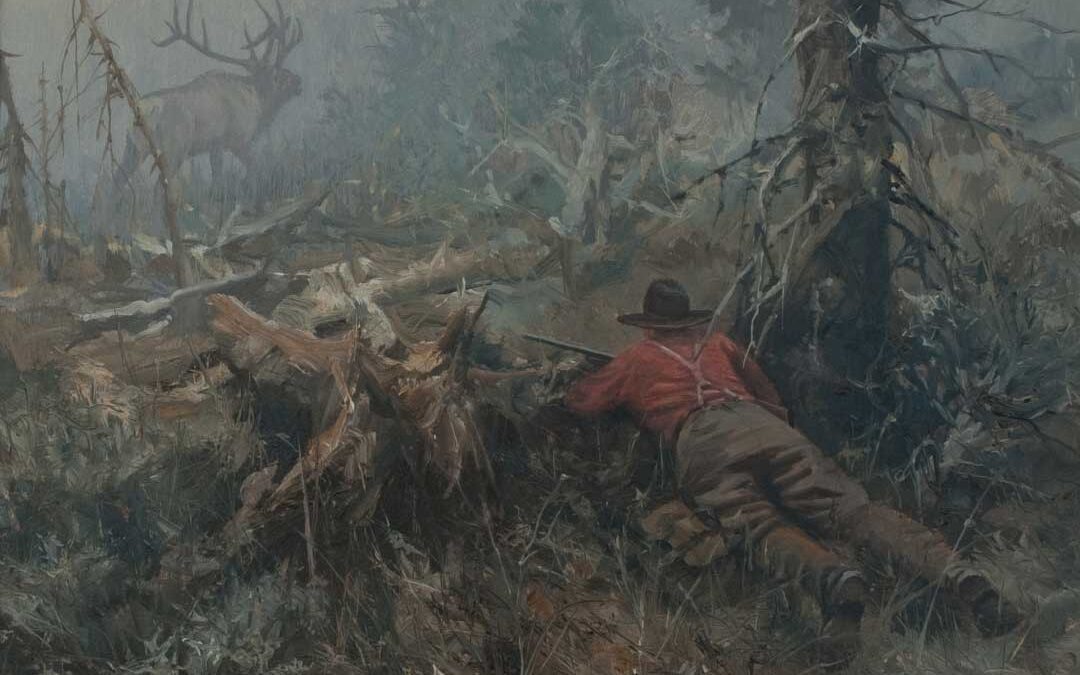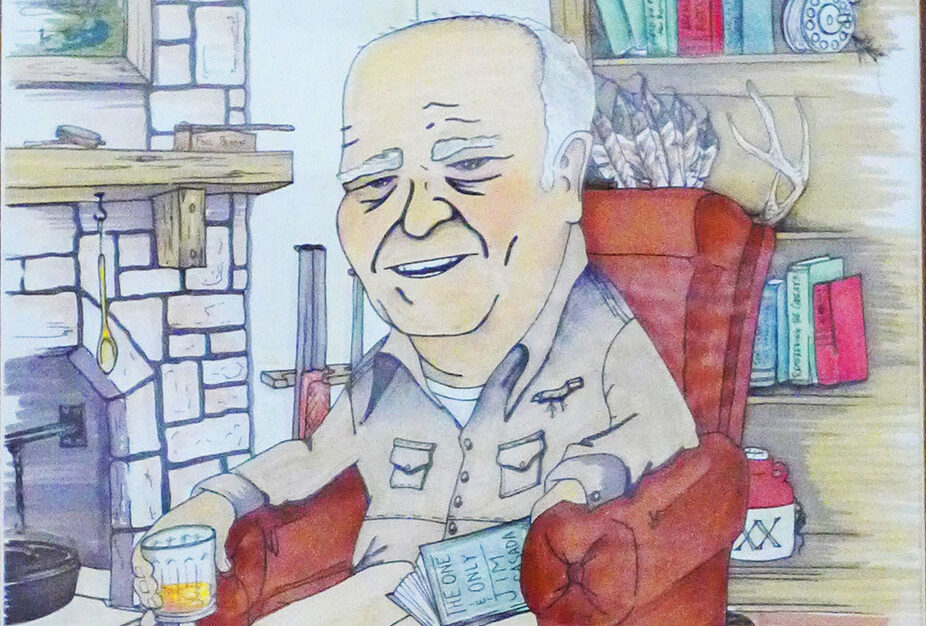Even with a repeating rifle, hunters should fire every shot as if it were their last…especially when hunting the massive bull elk.
An excerpt from Roosevelt’s The Wilderness Hunter.
The morning dawned clear and cold, the sky a glorious blue. Woody and I started to hunt over the great tableland and led our stout horses up the mountainside by elk trails so bad that they had to climb like goats. All these elk trails have one striking peculiarity: They lead through thick timber, but every now and then send off short, well-worn branches to some cliff edge or jutting crag, commanding a view far and wide over the country beneath. Elk love to stand on these lookout points and scan the valleys and mountains round about.
Blue grouse rose from beside our path; Clarke’s crows flew past us, with a hollow, flapping sound, or lit in the pine-tops, calling and flirting their tails; the gray-clad whisky jacks, with multitudinous cries, hopped and fluttered near us. Snowshoe rabbits scuttled away, the big furry feet which give them their name already turning white.
At last we came out on the great plateau, seamed with deep, narrow ravines. Reaches of pasture alternated with groves and open forests of varying size. Almost immediately we heard the bugle of a bull elk and saw a big band of cows and calves on the other side of a valley. There were three bulls with them, one very large, and we tried to creep up on them; but the wind was baffling and spoiled our stalk.
So we returned to our horses, mounted them, and rode a mile farther, toward a large open wood on a hillside. When within 200 yards we heard directly ahead the bugle of a bull and pulled up short.
In a moment I saw him walking through an open glade; he had not seen us. The slight breeze brought us down his scent. Elk have a strong characteristic smell; it is usually sweet, like that of a herd of Alderney cows; but in old bulls, while rutting, it is rank, pungent and lasting. We stood motionless ’til the bull was out of sight, then stole to the wood, tied our horses and trotted after him. He was traveling fast, occasionally calling; whereupon others in the neighborhood would answer. Evidently he had been driven out of some herd by the master bull.
He went faster than we did, and while we were vainly trying to overtake him we heard another very loud and sonorous challenge to our left. It came from a ridge crest at the edge of the woods, among some scattered clumps of the northern nut-pine or pinyon—a queer conifer, growing very high on the mountains, its multi-forked trunk and wide-spreading branches giving it the rounded top and, at a distance, the general look of an oak rather than a pine.
We at once walked toward the ridge, upwind. In a minute or two, to our chagrin, we stumbled on an outlying spike bull, evidently kept on the outskirts of the herd by the master bull. I thought he would alarm all the rest; but, as we stood motionless, he could not see clearly what we were. He stood, ran, stood again, gazed at us, and trotted slowly off. We hurried forward as fast as we dared, and with too little care; for we suddenly came in view of two cows.
As they raised their heads to look, Woody squatted down where he was, to keep their attention fixed, while I cautiously tried to slip off to one side unobserved. Favored by the neutral tint of my buckskin hunting shirt, with which my shoes, leggings and soft hat matched, I succeeded. As soon as I was out of sight I ran hard and came up to a hillock crested with pinyons, behind which I judged I should find the herd. As I approached the crest, their strong, sweet smell smote my nostrils. In another moment I saw the tips of a pair of mighty antlers, and I peered over the crest with my rifle at the ready.
Thirty yards off, behind a clump of pinyons, stood a huge bull, his head thrown back as he rubbed his shoulders with his horns. There were several cows around him, and one saw me immediately and took alarm. I fired into the bull’s shoulder, inflicting a mortal wound; but he went off, and I raced after him at top speed, firing twice into his flank; then he stopped, very sick, and I broke his neck with a fourth bullet.
An elk often hesitates in the first moments of surprise and fright, and does not get really underway for 200 or 300 yards; but, when once fairly started, he may go several miles, even though mortally wounded; therefore, the hunter, after his first shot, should run forward as fast as he can and shoot again and again until the quarry drops. In this way many animals that would otherwise be lost are obtained, especially by the man who has a repeating rifle.
Nevertheless, the hunter should beware of being led astray by the ease with which he can fire half a dozen shots from his repeater; and he should aim as carefully with each shot as if it were his last. No possible rapidity of fire can atone for habitual carelessness of aim with the first shot.
The elk I thus slew was a giant. His body was the size of a steer’s, and his antlers, though not unusually long, were very massive and heavy. He lay in a glade on the edge of a great cliff. Standing on its brink, we overlooked a most beautiful country, the home of all homes for the elk: a wilderness of mountains, the immense evergreen forest broken by park and glade, by meadow and pasture, by bare hillside and barren tableland. Some five miles off lay the sheet of water known to the old hunters as Spotted Lake; two or three shallow, sedgy places, and spots of geyser formation, made pale-green blotches on its wind-rippled surface. Far to the southwest, in daring beauty and majesty, the grand domes and lofty spires of the Tetons shot into the blue sky.




